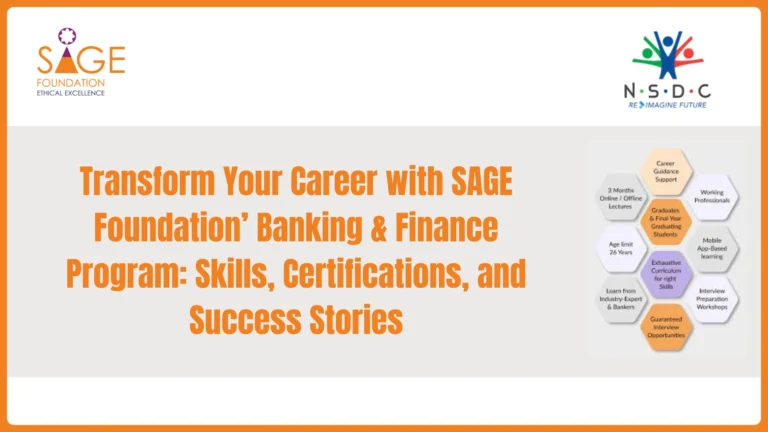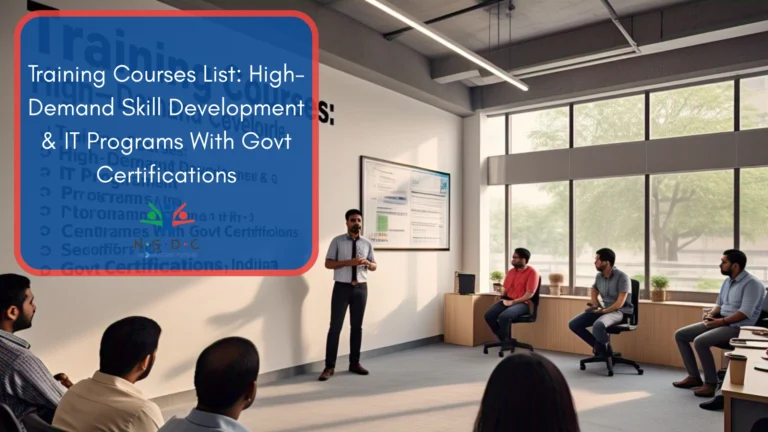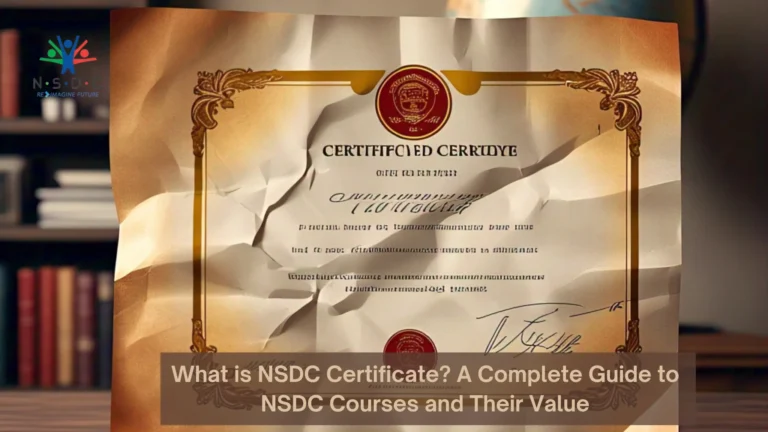The Importance of Skill Development: A Complete Guide to Vocational Education & Career Growth
Introduction
I know you query you are searching for Importance of Skill Development? In today’s fast-evolving job market, skill development is no longer optional—it’s essential. Whether you’re a student, a professional, or someone looking to switch careers, understanding what is skill development, its types, and its importance in vocational education can set you apart.
This guide explores:
✔ Skill development meaning and real-world skill development examples
✔ The benefits of vocational education and its role in employability
✔ Vocational education in India, its system, and objectives
✔ How NSDC Courses can help you build vocational skills for career success
What is Skill Development? (Definition & Types)
Skill Development Meaning
Skill development refers to the process of improving specific abilities—technical, cognitive, or interpersonal—to enhance employability and productivity. It bridges the gap between education and industry demands.
Types of Skill Development
- Technical Skills (e.g., coding, welding, digital marketing)
- Soft Skills (communication, leadership, teamwork)
- Vocational Skills (job-specific training like electrician, healthcare)
- Cognitive Skills (problem-solving, critical thinking)
🔹 Example: A vocational skills development program in plumbing equips learners with hands-on expertise for real-world jobs.
Why is Skill Development Important?
1. Bridges the Education-Employment Gap
Traditional education for skill often lacks practical training. Vocational education fills this gap by offering industry-aligned courses.
2. Enhances Career Opportunities
Employers prioritize candidates with skill building in relevant fields. For instance, vocational education in India boosts job readiness in sectors like IT, healthcare, and construction.
3. Economic Growth & Self-Reliance
A skilled workforce drives national progress. The vocationalisation of education ensures more job-ready professionals, reducing unemployment.
4. Adaptability in a Changing Job Market
Automation and AI demand upskilling. Continuous skill development examples include learning AI tools or renewable energy tech.
Vocational Education: Key to Skill Development
What is Vocational Education?
Vocational education (also called vocational studies) focuses on job-specific training rather than theoretical learning.
🔹 Definition: “Vocational education meaning” refers to training that prepares individuals for skilled trades, crafts, and technical roles.
Importance of Vocational Education
✅ Hands-on Learning: Direct application in fields like automotive repair, healthcare, and IT.
✅ Faster Employment: Short-term courses lead to quicker job placements.
✅ Industry-Relevant Skills: Aligns with market needs (e.g., vocational skills development in solar energy).
Vocational Education System in India
India’s vocational education system includes:
- NSDC (National Skill Development Corporation) programs
- ITIs (Industrial Training Institutes)
- PMKVY (Pradhan Mantri Kaushal Vikas Yojana)
🔗 Explore skill-building courses at NSDC Courses
Benefits of Vocational Education
1. Job Readiness
Unlike traditional degrees, vocational education ensures immediate employability (e.g., electrician, nursing).
2. Cost-Effective & Time-Saving
Short-term courses (6 months–2 years) reduce financial burden.
3. High Demand for Skilled Workers
Industries like construction, healthcare, and IT seek vocational skills over generic degrees.
4. Entrepreneurial Opportunities
Vocational training (e.g., beauty courses, carpentry) enables self-employment.
Challenges & Future of Vocational Education
Common Misconceptions
❌ “Vocational education is inferior to degrees.”
✅ Reality: Many high-paying jobs (e.g., aviation technicians) require vocational expertise.
Future Trends
- Digital Upskilling (AI, blockchain courses)
- Green Jobs Training (solar energy, EV mechanics)
- Global Skill Partnerships (international job opportunities)
FAQs on Skill Development & Vocational Education
1. What do you mean by vocational education?
Vocational education is job-focused training (e.g., plumbing, coding) that prepares learners for specific careers.
2. What are the advantages of vocational education?
- Faster employment
- Lower education costs
- High industry demand
3. How does skill development impact careers?
It increases employability, salary potential, and career flexibility.
4. Where can I find vocational courses in India?
Check NSDC Courses for certified programs.
Conclusion: Invest in Skill Development Today!
Whether through vocational education or continuous skill building, enhancing abilities is crucial for career success. With India’s growing focus on vocationalisation of education, now is the best time to upskill.
🚀 Ready to boost your career? Explore industry-relevant courses at NSDC Courses today!






